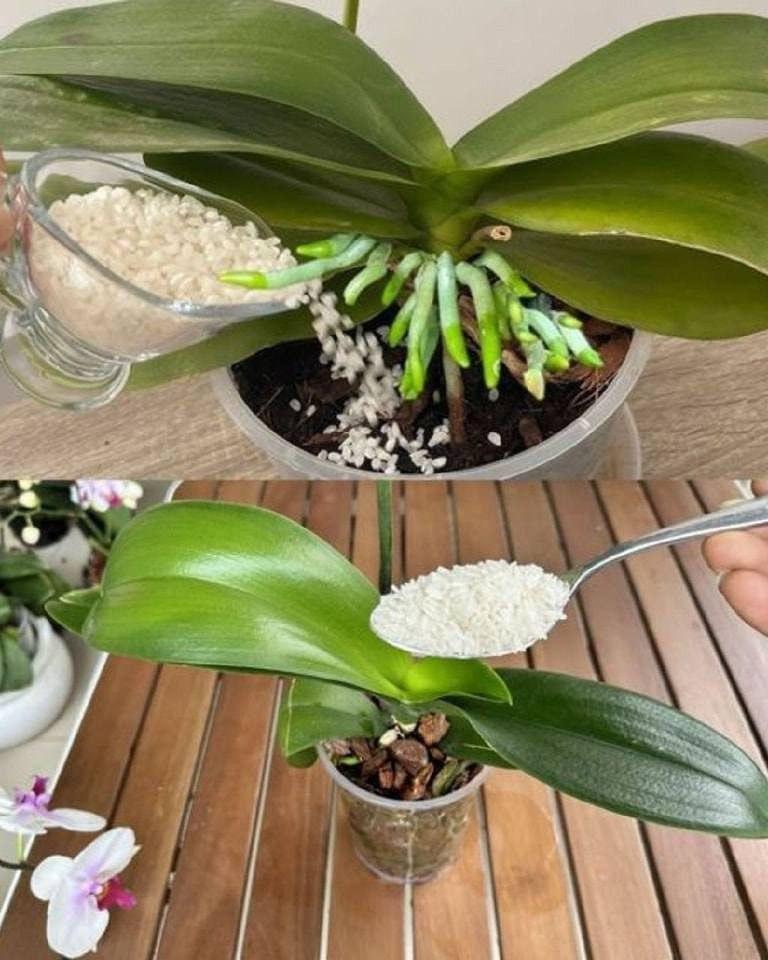ADVERTISEMENT
3. **After Repotting**: Orchids should generally not be fertilized immediately after repotting. The orchid will need time to settle into its new potting medium, and fertilizing too soon can cause stress to the plant. Wait for about 4 to 6 weeks before resuming your regular fertilizing schedule.
### How to Fertilize Your Orchid
The most effective way to fertilize your orchid is through a technique called **”fertilizer watering.”** This method involves mixing the fertilizer with water and applying it to the orchid’s roots. Here’s how to do it:
1. **Water the Orchid First**: Before applying fertilizer, water your orchid with plain, room-temperature water. This ensures that the roots are hydrated and prevents fertilizer “burn” from direct contact with dry roots.
2. **Dilute the Fertilizer**: Mix the fertilizer according to the package instructions. For most orchids, it’s best to dilute the fertilizer to half or a quarter of the recommended strength, as orchids are sensitive to high concentrations of nutrients.
3. **Apply Fertilizer**: Pour the diluted fertilizer solution into the pot, ensuring that it reaches the root zone. Be sure to cover the base of the plant but avoid over-wetting the foliage, as this can cause fungal issues. Allow any excess solution to drain out of the bottom of the pot, as orchids are susceptible to root rot if left in standing water.
4. **Frequency**: As mentioned earlier, during the growing season, fertilize once every two weeks. In the resting season, reduce the frequency to once a month or completely stop fertilizing until the plant begins to grow again.
### Organic Fertilizers for Orchids
While chemical fertilizers are widely available, many orchid growers prefer organic options, which can be gentler on the plant and more environmentally friendly. Organic fertilizers are typically slow-release, meaning they release nutrients gradually, providing a steady supply of nutrients over time.
Common organic fertilizers for orchids include:
– **Fish Emulsion**: A liquid fertilizer made from fish by-products, rich in nitrogen and trace elements.
– **Seaweed Extract**: A natural fertilizer that contains a variety of micronutrients and hormones that promote root growth and flower development.
– **Compost Tea**: A liquid made by steeping compost in water, which is rich in nutrients and beneficial microorganisms.
– **Worm Castings**: A slow-release organic fertilizer rich in essential nutrients for plant growth.
These organic fertilizers can be used in a similar manner to synthetic fertilizers but often require less frequent application. Be sure to follow the manufacturer’s guidelines when using organic fertilizers.
### Tips for Maximizing Orchid Blooms
1. **Balance Fertilization with Proper Watering**: While fertilization is essential, over-watering or improper watering can quickly undo the benefits of fertilization. Ensure that your orchid’s potting medium is well-draining and that the plant is not sitting in water for extended periods. Watering should be done only when the medium feels dry to the touch.
2. **Consider the Type of Orchid**: Different types of orchids have different needs, so research the specific requirements of your orchid species. For instance, epiphytic orchids, which grow in trees in the wild, may require slightly different fertilization practices than terrestrial orchids.
3. **Provide Adequate Light**: In addition to proper fertilization, make sure your orchid is receiving the right amount of light. Orchids typically need bright, indirect light to thrive. Insufficient light can cause weak growth and sparse blooms, even with optimal fertilization.
4. **Repot When Necessary**: Orchids benefit from being repotted every 1 to 2 years, especially if they’ve outgrown their current pot or the potting medium has broken down. Repotting provides fresh nutrients and encourages healthy root growth.
### Conclusion
Fertilizing your orchid is one of the most effective ways to promote healthy growth, vibrant flowers, and long-lasting blooms. By following a balanced fertilization schedule and using the right fertilizer for your orchid, you’ll be rewarded with stunning blossoms that brighten any space. Don’t forget that proper watering, light, and occasional repotting are just as important for your orchid’s overall health. With the right care, your orchid will flourish and bloom for years to come!
ADVERTISEMENT
ADVERTISEMENT
